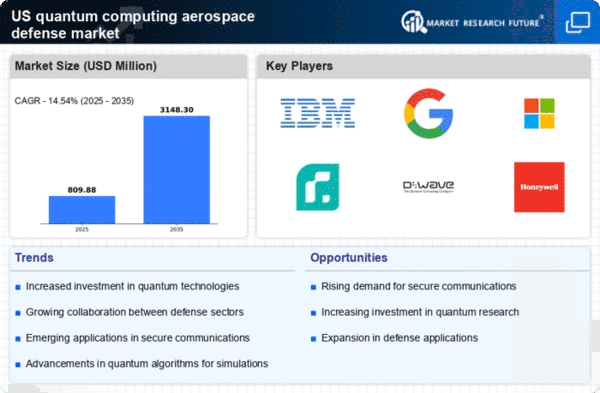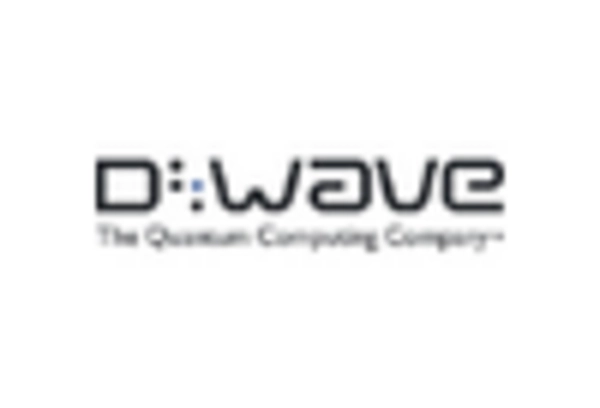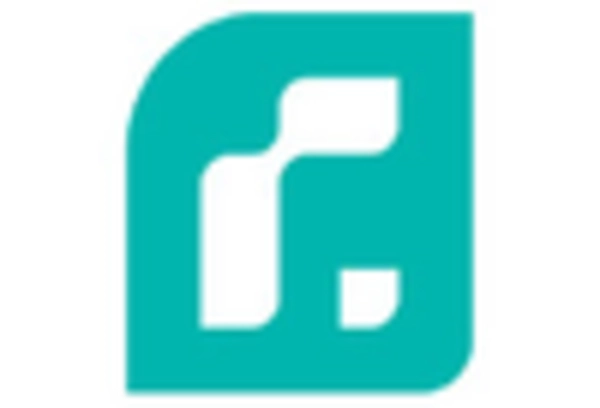Government Funding and Support
Government funding plays a pivotal role in the growth of the quantum computing-aerospace-defense market. The U.S. government has recognized the strategic importance of quantum technologies, leading to increased investments in research and development. In recent years, funding for quantum initiatives has reached billions of dollars, aimed at fostering innovation and maintaining a competitive edge in defense capabilities. This financial support not only accelerates technological advancements but also encourages collaboration between public and private sectors. The commitment to funding quantum research is likely to drive the market forward, as it enables the development of cutting-edge solutions tailored for aerospace and defense applications.
Advancements in Quantum Algorithms
The quantum computing-aerospace-defense market is experiencing a surge in advancements related to quantum algorithms, which are crucial for solving complex problems in aerospace and defense applications. These algorithms can potentially enhance optimization processes, improve simulations, and accelerate data analysis. As organizations invest in developing quantum algorithms, the market is projected to grow significantly. For instance, the Department of Defense has allocated substantial funding towards quantum research initiatives, indicating a commitment to harnessing these technologies. The potential for quantum algorithms to outperform classical computing methods in specific tasks suggests a transformative impact on the aerospace and defense sectors.
Emerging Applications in Defense Systems
The emergence of quantum computing applications in defense systems is a significant driver for the quantum computing-aerospace-defense market. Technologies such as quantum cryptography and quantum sensing are being explored for their potential to enhance security and situational awareness in military operations. For example, quantum sensors could provide unprecedented accuracy in navigation and detection, which is critical for defense strategies. As these applications gain traction, the market is expected to expand, with estimates suggesting a growth rate of over 25% annually in the coming years. The integration of quantum technologies into defense systems may redefine operational capabilities.
Strategic Partnerships and Collaborations
Strategic partnerships and collaborations among industry players are increasingly shaping the quantum computing-aerospace-defense market. Companies are recognizing the need to pool resources and expertise to accelerate the development of quantum technologies. Collaborations between tech firms, defense contractors, and academic institutions are fostering innovation and facilitating knowledge transfer. These partnerships are essential for addressing the complex challenges associated with quantum computing. As organizations work together to create synergies, the market is likely to witness enhanced product offerings and faster deployment of quantum solutions in aerospace and defense sectors.
Growing Demand for Enhanced Security Solutions
The growing demand for enhanced security solutions is a critical driver in the quantum computing-aerospace-defense market. As cyber threats evolve, the need for robust security measures becomes paramount. Quantum technologies, particularly quantum encryption, offer advanced methods for securing sensitive data and communications. The aerospace and defense sectors are increasingly adopting these solutions to protect against potential breaches. With the market for quantum encryption projected to reach $1 billion by 2027, the urgency for implementing these technologies is evident. This demand for enhanced security is likely to propel the growth of the quantum computing-aerospace-defense market.
















